Nigeria
by ProfEssays
Nigeria is a natural gas and
oil rich country that is bordered by Benin on the west, Niger and Chad
to the north, Cameroon to the east, and the Gulf of Guinea to its south.
Abuja is its capital city located in the center of the country. There are
two major rivers in the country, the Niger and the Benue. Nigeria is about
twice the size of California. Nigeria's climate varies; equatorial in south,
tropical in center, arid in north. Nigeria has very serious problems with
soil degradation; rapid deforestation; urban air and water pollution; desertification;
oil pollution - water, air, and soil; has suffered serious damage from
oil spills; loss of arable land; rapid urbanization that effect its growing
economy.
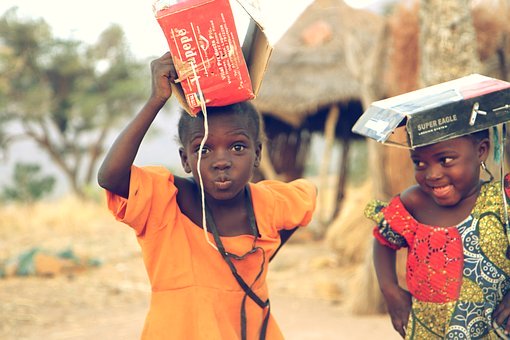
Located in the West of Africa,
Nigeria has a population of more than 120 million people. The most populous
country in Africa, Nigeria houses one quarter of all the people in sub-Saharan
Africa. It is rich in mineral resources and is the fifth-largest exporter
of oil in the world. It has iron-ore deposits in the Northern Savanna region.
Tin and columbite are found south of the savanna in the plateau region.
Its vast deposits of oil and natural gas are located in the south-central
delta region. It also has large reserves of coal. Nigeria has a complex
collection of cultural, social and linguistic groups with over 250 ethnic
groups.
Nearly three-quarters of
the people belong to one of four ethnic groups: the Hausa and Fulani peoples
of the Muslim-dominated north, and the Yoruba and Ibo of the Christian
dominated southwest and southeast respectively. The Yoruba are well-known
for their arts and crafts and many of Nigeria's best-known artists and
writers are Yoruba. Nigeria traditionally has been an agricultural country,
providing it's own food needs and exporting large amounts of agricultural
goods such as palm oil, cocoa beans, and rubber. But a new dependence on
oil has caused great strains in Nigeria's economy. Greater economic opportunities
have caused a migration to urban areas, bringing about a decrease in agricultural
output. This has led to a greater dependence on oil in the national economy.
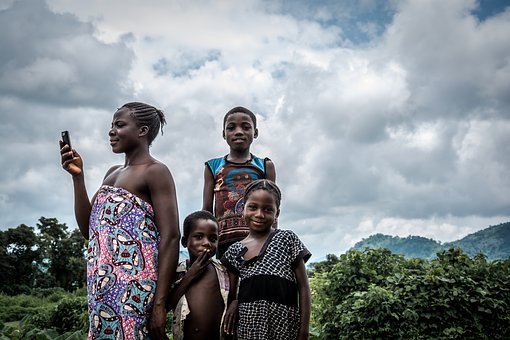
By the early 1980's, 98 percent
of export earnings and four-fifths of government revenues was from oil.
A drop in oil prices in the early 1980's and years of corruption and mismanagement
by military governments and left Nigeria with high unemployment and a large
foreign debt. Originally a region of ethnically based kingdoms and states,
the state of Nigeria was formed under British rule in 1906. It became an
independent state in 1960. Following a period of ethnic fighting, a military
dictatorship took over in 1966 and ruled until 1979. During the time from
1966 to 1970 people in the southeast brought about civil war with an attempt--which
ultimately failed--to secede- and form independent state called Biafra.
Power was briefly handed over to democratic rule in 1979 but a coup in
1983 brought the military back to power again.
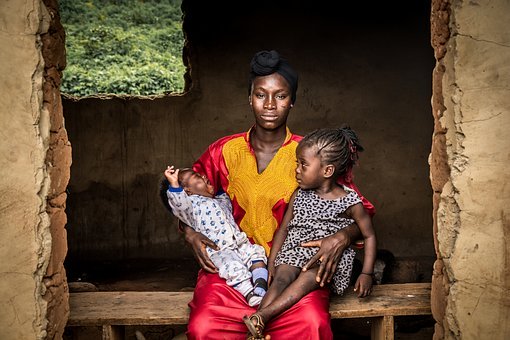
The country was ruled by
General Babangida for eight years. In 1993 democratic elections were called
again but the military leaders felt that that ethnic divisions were too
great and that the country was too divided and they annulled the results.
Rule was handed over to an interim government and then a military coup
brought General Abachi to power in 1993. Abachi was a corrupt and hated
general. To still criticism by the press, He shut down Nigeria's two main
and most widely read newspapers and arrested their journalists (Encarta).
The most populous country in Africa, Nigeria accounts for approximately
one-quarter of West Africa's people. Although less than 25% of Nigerians
are urban dwellers, at least 24 cities have populations of more than 100,000.
The variety of customs, languages, and traditions among Nigeria's 250 ethnic
groups gives the country a rich diversity. The dominant ethnic group in
the northern two-thirds of the country is the Hausa-Fulani, most of whom
are Muslim.
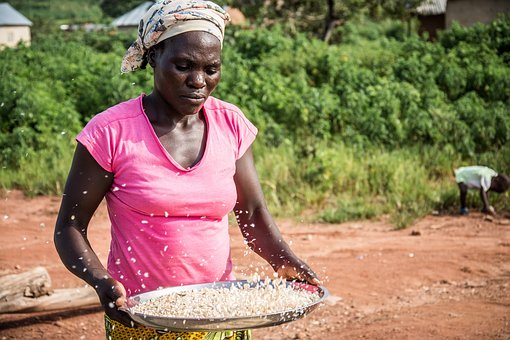
Other major ethnic groups
of the north are the Nupe, Tiv, and Kanuri. The Yoruba people are predominant
in the southwest. The ethnicity of Nigeria is so varied that there is no
definition of a Nigerian beyond that of someone who lives within the borders
of the country. The boundaries of the former English colony were drawn
to serve commercial interests, largely without regard for the territorial
claims of the Nigerians. As a result, about three hundred ethnic groups
comprise the population of Nigeria, and the country's unity has been consistently
under siege. In 1999 Obasanjo, a Yoruba general from the Christian south,
became president in an election that marked the end of 16 years of military-led
regimes. His election campaign was financed by the previous military leadership
largely because they could rely on him not to prosecute them. However,
Obasanjo appears to be following the spirit of democracy and human rights
have greatly improved in Nigeria. He appointed a commission to investigate
past human rights violations under the generals but is unable or unwilling
to force the generals to come before the court.
Complicating matters is that
the previous dynasty of generals all came from the Muslim north, while
Obasanjo is from the Christian South. There has long been a tension and
rivalry between the two groups which increases the perils of bringing the
generals to justice. In any case, human rights have greatly improved under
Obasanjo (Sacred Cows 24-26). A number of domestic and international human
rights groups generally operate freely within the country and the government
is generally cooperative with them. Some high-level government officials
have stated that these organizations contribute to the development of democracy.
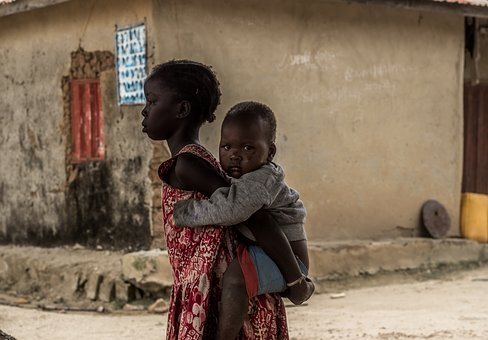
The actions of past governments
are widely criticized and aired in the media. Since Obasanjo took his oath
of office in Nigeria's first democratic election in twenty years, the Nigerian
people have had a new sense of hope in the future. But at the same time,
they also have a fear that the backroom deals funding Obasanjo's candidacy
will prevent them from examining the wrongdoings of the past and bringing
the key players to justice. Another area of concern is the environmental
destruction in the oil-producing Nigerian Delta region and the compensation
for the people of the region. Saro-Wiwa, a writer who fought for the rights
of the Ogoni people in the Delta Region was excecuted by Abacha's men in
1995 after a trumped up trial in which he was found guilty of the murder
of four Ogoni chiefs. He had brought publicity to the plight of the people
in the region and after his execution, there were demonstrations against
Royal Dutch/Shell including in the United States where in some places dummies
were hung in Shell gas stations (Delta Rights). In the book "Where Vultures
Feast", Ike Okonta and Oronto Douglas investigated the environmental destruction
of the region.
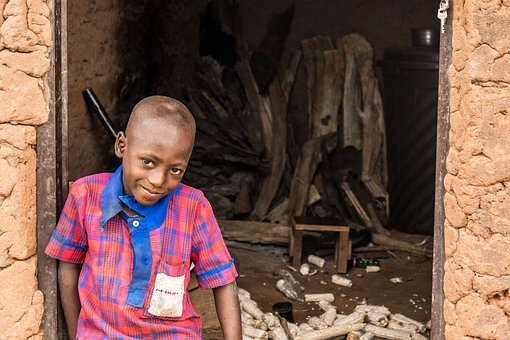
In one region drilling was
performed right in the middle of a village. They described how, oblivious
to the dangers, the children had converted one of the waste pits into a
swimming hole. They reported on drinking water conditions in five separate
sites where Shell has installations, finding petroleum hydrocarbon (TPH)
levels 250 to 37,500 times the legislated level for European Union States.
A human rights worker from a NGO based in New York visited a village where
a pipeline had burst spilling 800,000 barrels of oil into the surrounding
creeks. Nigeria's official foreign debt is about $28.5 billion, about 75%
of which is owed to Paris Club countries. A large chunk of this debt is
interest and payment arrears. In August 2000 the International Monetary
Fund (IMF) and Nigeria signed a one-year Stand-by Arrangement (SBA), leading
to a debt rescheduling agreement in December between Nigeria and its Paris
Club creditors. By August 2001, despite continued dialogue with the IMF,
Nigeria had been unable to implement many of the SBA conditions.
The IMF consented to extend
its SBA by a few months and seek out revised targets and conditions for
a new agreement. As of September 2001, only a few of Nigeria's creditor
governments had signed bilateral rescheduling agreements. Any long-term
debt relief will require strong and sustained economic reforms over a number
of years. Expanded government spending also has led to upward pressure
on consumer prices. Inflation which had fallen to 0% in April 2000 reached
14.5% by the end of the year and 18.7% in August 2001. In 2000 high world
oil prices resulted in government revenue of over $16 billion, about double
the 1999 level. State and local governmental bodies demand access to this
"windfall" revenue, creating a tug-of-war between the federal government,
which seeks to control spending, and state governments desirous of augmented
budgets preventing the government from making provision for periods of
lower oil prices. Since undergoing severe distress in the mid-1990s, Nigeria's
banking sector has witnessed significant growth over the last few years
as new banks enter the financial market.
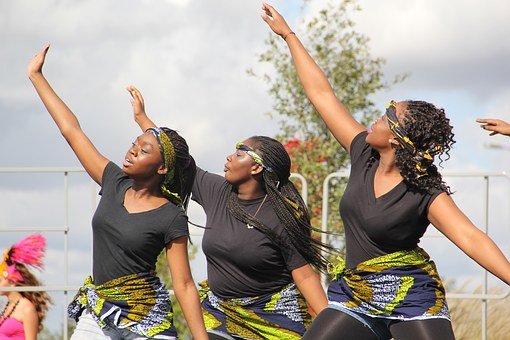
Harsh monetary policies implemented
by the Central Bank of Nigeria to absorb excess Naira liquidity in the
economy has made life more difficult for banks, some of whom engage in
currency arbitrage (round-tripping) activities that generally fall outside
legal banking mechanisms. Private sector-led economic growth remains stymied
by the high cost of doing business in Nigeria, including the need to duplicate
essential infrastructure, the threat of crime and associated need for security
counter measures, the lack of effective due process, and nontransparent
economic decision-making, especially in government contracting. While corrupt
practices are endemic, they are generally less flagrant than during military
rule, and there are signs of improvement. Meanwhile, since 1999 the Nigerian
Stock Exchange has enjoyed strong performance, although equity as a means
to foster corporate growth remains underutilized by Nigeria's private sector.
Top
|

